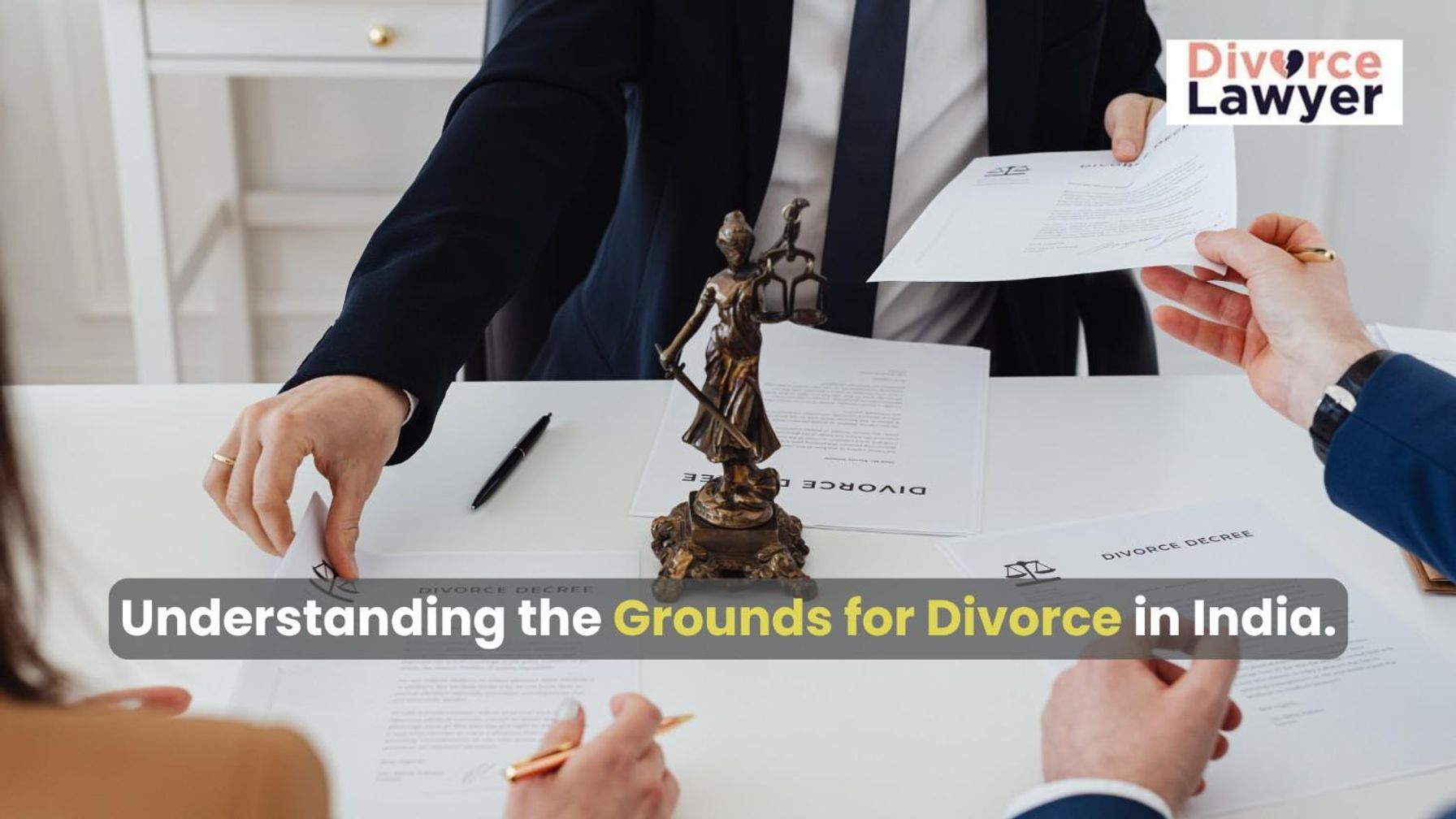Divorce is a difficult but sometimes necessary step for individuals facing marital discord. In India, the grounds for divorce vary based on religion and the laws governing different communities. Whether it’s mutual consent or contested divorce, understanding the legal framework can help you make informed decisions.
If you are considering divorce and need expert legal guidance, visit Divorce Lawyer to consult experienced divorce lawyers in India.
Types of Divorce in India
There are two main types of divorce in India:
- Mutual Consent Divorce – When both spouses agree to separate amicably.
- Contested Divorce – When one spouse files for divorce based on specific legal grounds.
Each type has its own legal requirements, and the process can vary depending on personal laws governing Hindus, Muslims, Christians, Parsis, and other communities.
Legal Grounds for Divorce in India
The grounds for divorce in India are primarily defined under the Hindu Marriage Act, 1955, Muslim Personal Law, Indian Divorce Act, 1869, and Special Marriage Act, 1954.
1. Adultery
Adultery is a valid ground for divorce under Indian law. If one spouse engages in a voluntary sexual relationship outside the marriage, the other spouse can file for divorce. However, it must be proven in court with substantial evidence.
2. Cruelty
Cruelty can be both physical and mental. It includes:
- Physical abuse or domestic violence
- Mental harassment or emotional torture
- False accusations and defamation
- Denial of companionship
If a spouse’s behavior causes physical or mental harm, the affected party can seek divorce on the grounds of cruelty.
3. Desertion
If one spouse abandons the other for a continuous period of at least two years, it is considered desertion. The abandonment must be without consent and without a valid reason.
4. Conversion to Another Religion
If one spouse converts to another religion without the consent of the other, it becomes a ground for divorce under the Hindu Marriage Act and the Special Marriage Act.
5. Mental Disorder
If a spouse suffers from a mental illness that makes it impossible to live together, the other spouse can file for divorce. However, the mental disorder must be severe and well-documented.
6. Communicable Diseases
Certain diseases such as HIV/AIDS, leprosy, or other contagious illnesses can be grounds for divorce if they pose a risk to the spouse or family.
7. Renunciation of the World
If a spouse renounces worldly life and becomes a monk or nun, the other spouse has the right to file for divorce. This is primarily recognized under Hindu law.
8. Presumption of Death
If a spouse has been missing for at least seven years and there is no proof of them being alive, the other spouse can seek divorce by presumption of death.
Additional Grounds for Divorce for Women
Women in India have certain additional grounds for divorce under Hindu law, including: ✅ Husband guilty of rape, sodomy, or bestiality ✅ Husband remarrying without her consent ✅ Failure to provide maintenance for at least two years ✅ Marriage before the age of 15, with the right to repudiate upon turning 18
If you need legal advice on filing for divorce, consult Divorce Lawyer for expert guidance.
Grounds for Divorce Under Different Personal Laws
Hindu Marriage Act, 1955
- Adultery
- Cruelty
- Desertion (2+ years)
- Conversion
- Mental disorder
- Renunciation
- Presumption of death
Muslim Personal Law
- Talaq (by husband)
- Khula (by wife)
- Lian (false accusations by husband)
- Faskh (judicial divorce for cruelty, non-support, or abandonment)
Indian Divorce Act, 1869 (for Christians)
- Adultery
- Conversion
- Cruelty
- Desertion (2+ years)
- Mental disorder
Special Marriage Act, 1954 (for interfaith marriages)
- Adultery
- Cruelty
- Desertion
- Mental illness
- Communicable disease
Each law has specific requirements, so consulting a divorce lawyer is essential to understanding your legal options.
Mutual Consent Divorce vs. Contested Divorce
Factor | Mutual Consent Divorce | Contested Divorce |
|---|---|---|
Time Required | 6 months – 1 year | 2–5 years |
Legal Complexity | Low | High |
Cost | Lower | Higher |
Stress Level | Minimal | High |
Court Involvement | Minimal | Significant |
If both spouses agree, mutual consent divorce is the quickest and easiest way to separate. However, if disagreements exist, a contested divorce may be necessary.
How to File for Divorce in India
Step 1: Hire a Divorce Lawyer
Having an experienced divorce lawyer is crucial to ensure your rights are protected.
Step 2: File a Petition
A divorce petition must be filed in the Family Court with proper documentation.
Step 3: Court Hearings
The court will hear arguments, examine evidence, and consider mediation before granting a divorce.
Step 4: Final Divorce Decree
If all conditions are met, the court grants a divorce decree, officially dissolving the marriage.
Conclusion
Understanding the grounds for divorce in India is essential for anyone considering separation. Whether it’s cruelty, adultery, desertion, or mental illness, having the right legal guidance ensures a fair and smooth process. If you’re looking for expert legal assistance, visit Divorce Lawyer to consult top-rated divorce lawyers in India.




